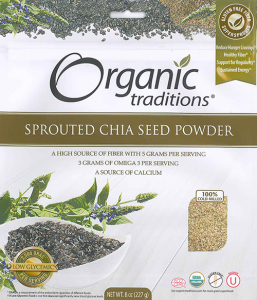CDC Concerned That We’re All Ignoring Chia Seed Recall

Look out for these seeds.
When investigators were first trying to find out the source of victims’ illnesses, the common thread was that they’re all healthy eaters: vegans, vegetarians, and people who don’t eat dairy. Eventually, investigators traced the infections to sprouted chia seeds that patients had eaten in various forms. So far, affected brands include Organic Traditions, Williams-Sonoma, and Navitas Naturals brand chia and chia-flaxseed blend powders.
Chia seeds, if you’re not familiar with them, are good not just for spreading on the exterior of a clay animal, but can also substitute for eggs in baked goods, make a slightly slimy and delicious healthy pudding, and provide bonus crunchiness and protein to anything you sprinkle them on. Chia seeds are common in many premade smoothie powders. They generally aren’t cooked before being eaten: the point of a smoothie is that you just throw everything in a blender and drink it, after all.
A Centers for Disease Control and Prevention spokesperson told Food Safety News that Food and Drug Administration investigators have traced the infection back to one particular farm.
If you have chia seeds or premade smoothie powders in your pantry, be sure to check the labels: the seeds have a pretty long shelf life, and could potentially sicken people for months to come.
Chia Seeds: 65 Salmonella Infections, Expanding Recall [Food Safety News]
Multistate Outbreak of Salmonella Infections Linked to Organic Sprouted Chia Powder [CDC]
Want more consumer news? Visit our parent organization, Consumer Reports, for the latest on scams, recalls, and other consumer issues.

